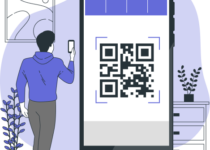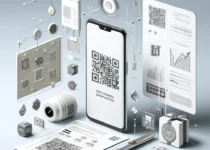How QR Codes Can Enhance Your Event Management Strategy
Introduction
Events are a cornerstone of many businesses, whether for marketing, networking, or entertainment. Incorporating QR codes into your event management strategy can streamline processes, enhance attendee experience, and provide valuable data insights. This post explores the myriad ways QR codes can be utilized to improve event management from start to finish.
Benefits of QR Codes in Event Management
- Streamlined Check-ins
- Quick Entry: QR codes on tickets allow for quick and efficient check-ins. Attendees simply scan their QR code at the entrance, reducing wait times and enhancing the overall experience.
- Reduced Paperwork: Digital check-ins via QR codes minimize the need for physical tickets and paperwork, making the process more eco-friendly and organized.
- Enhanced Engagement
- Interactive Elements: Use QR codes to link attendees to interactive content such as event agendas, speaker bios, and live polls. This keeps attendees engaged and informed throughout the event.
- Feedback and Surveys: Post-event feedback is crucial for improvement. QR codes can direct attendees to online surveys, making it easy for them to provide their insights and opinions.
- Networking Opportunities
- Digital Business Cards: Attendees can share contact information easily by scanning each other’s QR codes. This modern approach to networking ensures that contact details are exchanged quickly and accurately.
- Exclusive Content: Provide access to exclusive content, such as presentations or workshop materials, via QR codes. This adds value to the attendee experience and encourages them to engage more deeply with the event.
- Real-time Updates
- Instant Notifications: Use QR codes to direct attendees to a mobile app or webpage where they can receive real-time updates about the event, such as schedule changes or important announcements.
- Interactive Maps: QR codes can link to digital maps of the event venue, helping attendees navigate the space efficiently and find key locations like sessions, booths, and amenities.
- Data Collection and Analytics
- Track Attendance: QR codes can help track who attends which sessions or activities, providing valuable data on attendee interests and behaviors.
- Measure Engagement: Analyze scan data to understand which parts of the event were most popular and engaging. This information is invaluable for planning future events.
Implementation Tips
- Promotion and Communication
- Pre-event: Include QR codes in your promotional materials, such as emails, social media posts, and flyers, to provide information and encourage registrations.
- During the Event: Place QR codes at strategic locations throughout the venue, such as entrances, session rooms, and networking areas.
- Design and Usability
- Clear Instructions: Ensure that QR codes come with clear instructions on how to use them. Not all attendees may be familiar with QR technology, so a brief guide can be helpful.
- Visibility and Accessibility: Make sure QR codes are prominently displayed and easily accessible. Consider factors like lighting, placement height, and crowd flow when positioning your codes.
- Testing and Feedback
- Pilot Test: Conduct a pilot test of your QR code system before the event to ensure everything works smoothly. This can help identify any potential issues and allow you to make necessary adjustments.
- Gather Feedback: After the event, gather feedback from attendees on their experience with the QR codes. Use this feedback to improve future implementations.
Case Studies
- Tech Conference:
- A major tech conference used QR codes for attendee check-ins, session tracking, and networking. By scanning a QR code at each session, attendees could automatically log their participation and access presentation slides. This system resulted in a 40% reduction in check-in times and increased attendee satisfaction due to the seamless process.
- Music Festival:
- A popular music festival integrated QR codes into their tickets and promotional materials. Attendees could scan QR codes to access the event schedule, artist information, and interactive maps. Additionally, QR codes were used to gather feedback on performances and facilities. The festival organizers reported higher engagement and valuable insights from the feedback collected.
- Corporate Training Event:
- A corporate training event utilized QR codes to distribute training materials and gather post-session evaluations. Participants scanned QR codes to download handouts, access additional resources, and provide feedback on the sessions. This approach not only streamlined the distribution of materials but also resulted in a 50% increase in feedback response rates.
Conclusion
Integrating QR codes into your event management strategy can greatly enhance efficiency, engagement, and data collection. From streamlining check-ins to providing real-time updates and collecting valuable feedback, QR codes offer numerous benefits that can elevate the overall event experience. By leveraging the capabilities of My-QRC.com, you can create custom QR codes that drive your event’s success. Start incorporating QR codes into your event planning today and unlock new opportunities for growth and engagement.
Explore the full potential of QR codes with My-QRC.com, your ultimate free QR code generator. Start creating today and see how this versatile technology can transform your event management strategy.


